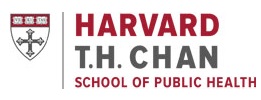Submitted by ja607 on
| Title | Opportunities and challenges for transcriptome-wide association studies. |
| Publication Type | Journal Article |
| Year of Publication | 2019 |
| Authors | Wainberg, M, Sinnott-Armstrong, N, Mancuso, N, Barbeira, AN, Knowles, DA, Golan, D, Ermel, R, Ruusalepp, A, Quertermous, T, Hao, K, Björkegren, JLM, Im, HKyung, Pasaniuc, B, Rivas, MA, Kundaje, A |
| Journal | Nat Genet |
| Volume | 51 |
| Issue | 4 |
| Pagination | 592-599 |
| Date Published | 2019 04 |
| ISSN | 1546-1718 |
| Keywords | Crohn Disease, Genetic Predisposition to Disease, Genetic Variation, Genome-Wide Association Study, Humans, Lipoproteins, LDL, Quantitative Trait Loci, Schizophrenia, Transcriptome |
| Abstract | Transcriptome-wide association studies (TWAS) integrate genome-wide association studies (GWAS) and gene expression datasets to identify gene-trait associations. In this Perspective, we explore properties of TWAS as a potential approach to prioritize causal genes at GWAS loci, by using simulations and case studies of literature-curated candidate causal genes for schizophrenia, low-density-lipoprotein cholesterol and Crohn's disease. We explore risk loci where TWAS accurately prioritizes the likely causal gene as well as loci where TWAS prioritizes multiple genes, some likely to be non-causal, owing to sharing of expression quantitative trait loci (eQTL). TWAS is especially prone to spurious prioritization with expression data from non-trait-related tissues or cell types, owing to substantial cross-cell-type variation in expression levels and eQTL strengths. Nonetheless, TWAS prioritizes candidate causal genes more accurately than simple baselines. We suggest best practices for causal-gene prioritization with TWAS and discuss future opportunities for improvement. Our results showcase the strengths and limitations of using eQTL datasets to determine causal genes at GWAS loci. |
| DOI | 10.1038/s41588-019-0385-z |
| Alternate Journal | Nat. Genet. |
| PubMed ID | 30926968 |
| PubMed Central ID | PMC6777347 |
| Grant List | 5U01HG009080 / NH / NIH HHS / United States 1DP2OD022870 / NH / NIH HHS / United States R01MH107666 / NH / NIH HHS / United States R01HG009120 / NH / NIH HHS / United States P30DK20595 / NH / NIH HHS / United States R01HL125863 / NH / NIH HHS / United States 1U24HG008956 / NH / NIH HHS / United States R21TR001739 / NH / NIH HHS / United States U01HG009431 / NH / NIH HHS / United States R01 HG010140 / HG / NHGRI NIH HHS / United States R01MH115676 / NH / NIH HHS / United States DP2 GM123485 / GM / NIGMS NIH HHS / United States R01HG010140 / NH / NIH HHS / United States R01MH101820 / NH / NIH HHS / United States |





